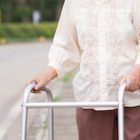Warning! This will be one of those posts you think back to from time to time, because the answers aren’t clear or easy, and the stakes are so high.
A few weeks ago we all watched the news about 150 people who lost their lives as their plane crashed into the French Alps; a tragic loss of life which we learned later was caused by the co-pilot, who had intentionally crashed the plane – suicide by one – mass murder of 149 others. Horrible, tragic, and just so very, very sad.
It’s easy, of course, to dismiss the young pilot as crazy – depressed, suicidal, truly an example of mental health gone awry. But if you’re like me, the next thought that pops into your head is a question, “Could it have been prevented?”
Once I learned of the pilot’s mental health issues, and the fact that his doctor had written a note to keep him from working, I wondered how exactly that had taken place. Writing a note isn’t the same as actively reporting to the authorities (whoever those authorities might be) unless a copy of the note was delivered to those authorities… (And as an aside, I wonder if the doctor stopped at handing the patient-pilot a note telling him not to fly, and didn’t report it to the right authorities, and if so, how does he sleep at night?)
But even more importantly, what are the rules or laws in the US? Is there any responsibility to report a patient who is dangerous to himself, or certainly others? Could a provider be held legally responsible if he did – or didn’t – report? How does HIPAA affect the assignment of responsibility? If there is a duty to report such a patient, where is the line drawn? How does that reporting take place? And how does one decide whether a patient is truly dangerous to someone else, or just him/herself – or even truly dangerous at all?
…..(sidebar)
I’ve been there. I’ve reported.
When I was a first grade teacher, many (many!) moons ago, teachers were mandated to report suspicion of child abuse among our students. One of my students, David, repeatedly came to school with black and blue marks, or a sore arm…. I would ask him how he got hurt and he had a new story every time — including the day he came to school with a black eye. When I asked him how he had gotten a black eye, he responded, “My mother said I fell down the stairs.”
And then I knew I had no choice but to report David’s situation. I was so upset to be put in that position! I was in my mid-20s at the time; still wet behind the ears. My hesitancy was a fear that when I reported it, David’s life would become even more difficult for him. Would he be taken away from his mother, perhaps thrown into foster care? If so, would that be a good thing in the long run? Or?
But none of those questions were mine to ask or answer. The law was the law. And I reported David’s injuries to state authorities.*
…..(end of sidebar)
Healthcare Professionals and the Duty to Report
So out of curiosity, I went looking for answers to my questions about providers and dangerous patients, and I learned something I had never known before, even after ten years of helping patients become smarter about navigating their care.
That is… that despite HIPAA, despite the privacy laws and what we think they mean, that in some US states, there is a duty on the part of doctors, nurses and other medical personnel to report a patient to law enforcement if they think that patient is a danger to “third persons”.
Examples: a hospital discharge nurse who sees that a patient who has been taking narcotics is about to drive himself home from the hospital. Or a psychologist or psychiatrist who is treating a stalker who threatens his/her victim. Or anything in between.
Laws vary from state-to-state and not all states seem to have “duty to report” laws. It was an interesting exercise to ask the questions and learn what I did… and then I knew I needed to ask the question for advocates, too.**
Do Patient Advocates Have a Duty to Report Dangerous Patients?
That answer is actually quite simple: legally, no. We aren’t medical professionals. As advocates, we aren’t licensed or certified in any way. There are no rules or laws to govern an answer to the question. There’s nothing in our Code of Conduct and Professional Standards that addresses this circumstance.
Some patient advocates hold licenses that mandate reporting. Nurses in some states, or social / caseworkers who have become private advocates may know of laws that govern their conduct in these kinds of cases because of the licenses they hold, even if they aren’t working in that capacity anymore.
The bigger question today is: as advocates, do we have an ethical duty to report?
If we are hired by a patient or caregiver, and learn that the patient is a danger to himself or others – do we report that person to the authorities for ethical purposes, in hopes of preventing injury or death to our patient or “third persons” ? Even if the only reason you would do so would be so you could sleep at night if one of your clients actually did something to hurt/maim/kill himself or herself or others… what would you do?
That’s not an answer I can give you. That’s something you need to examine within yourself.
Further – I am sure that some of you have dealt with mandated reporting in previous lives, and I would love to see or hear what you have to say on this subject, particularly if you have ever had to actually make a report.
So I’ll pose the question: If you learn that your client might possibly be a danger to himself or others, would you report that patient-client, or…. what would you do?
[yop_poll id=”5″ tr_id=”danger”]
Please take the poll, and/or comment below. This will be useful information as we move our profession forward.
………………..
*To finish up the story, I never learned if anything happened as a result of my reporting my suspected fears about David’s situation. I can tell you that I never saw any new marks on him for the rest of the year. But all this took place late in the school year, and my husband and I moved away before the following school year started.
**Learn more about which states have what laws, and how the law views the duty to report among healthcare workers through this article from Medscape, Legal Obligations to the Dangerous Patient.
. . . . . . . . . . . . . . . . . . . . . . . . . . . . . .
Please share your experience or join the conversation below.
LEARN ABOUT APHA MEMBERSHIP | TWITTER | GOOGLE + | LINKED IN





I recently had an experience where my client with dementia was driving despite the fact that his psychiatrist had told him and his wife that he was reporting him to DMV for further evaluation as based on a written driving assessment, he was not safe to drive. I sat with both my client and wife and with compassion explained that I would help to expedite a test with the DNV but in the meantime if he drive, I would report him to the authorities. Before I am a patient advocate, I am a person and as a person I believe we all have a responsibility to step in when ones behavior is dangerous.
At this point, I think it depends if the advocate is a mental health worker, nurse, or an attorney because the answer may depend on that state’s jurisdiction. I am an attorney who has represented social security claimants for over 18 years and who has primarily represented individuals with psychiatric and neurological impairments. It is extremely important that we advocates and the public at large do not stigmatize individuals with mental illness because of this tragic event. Although I do not dispute that the person may have had some depression it is most likely that the person had a personality order that was the driving force for him to make such a deliberate act. In my experience having worked with these individuals with a mental illness (I have worked with people who have severe Major Depression, Bi Polar Disease, Schizophrenia, PTSD, etc.) and from working with psychiatrists and reading the literature it is rare for that person to commit such an act involving so many other people. In some cases, I think we may have to report dangerous behavior though I think we must think carefully about who we are reporting and why.
I am aware that HIPPA laws prevent professionals in the health industry, from discussing a case they are involved in with anyone, without the permission of the patient or a representative of the patient. It is my belief that by advising the patient of consequences for his or her actions a person has done his or her job as an Advocate. Therefore , if the Advocate decides to report , he or she has competed the job as a Caring Human Being.